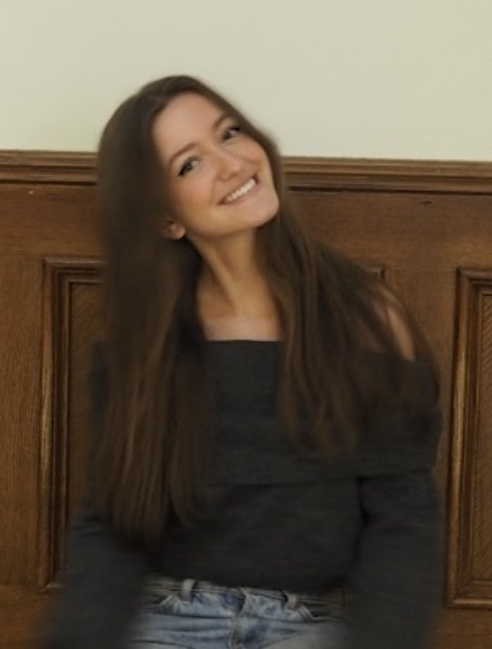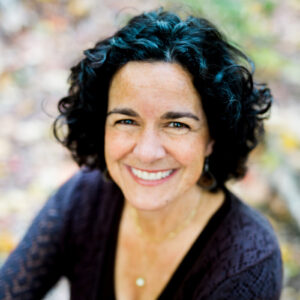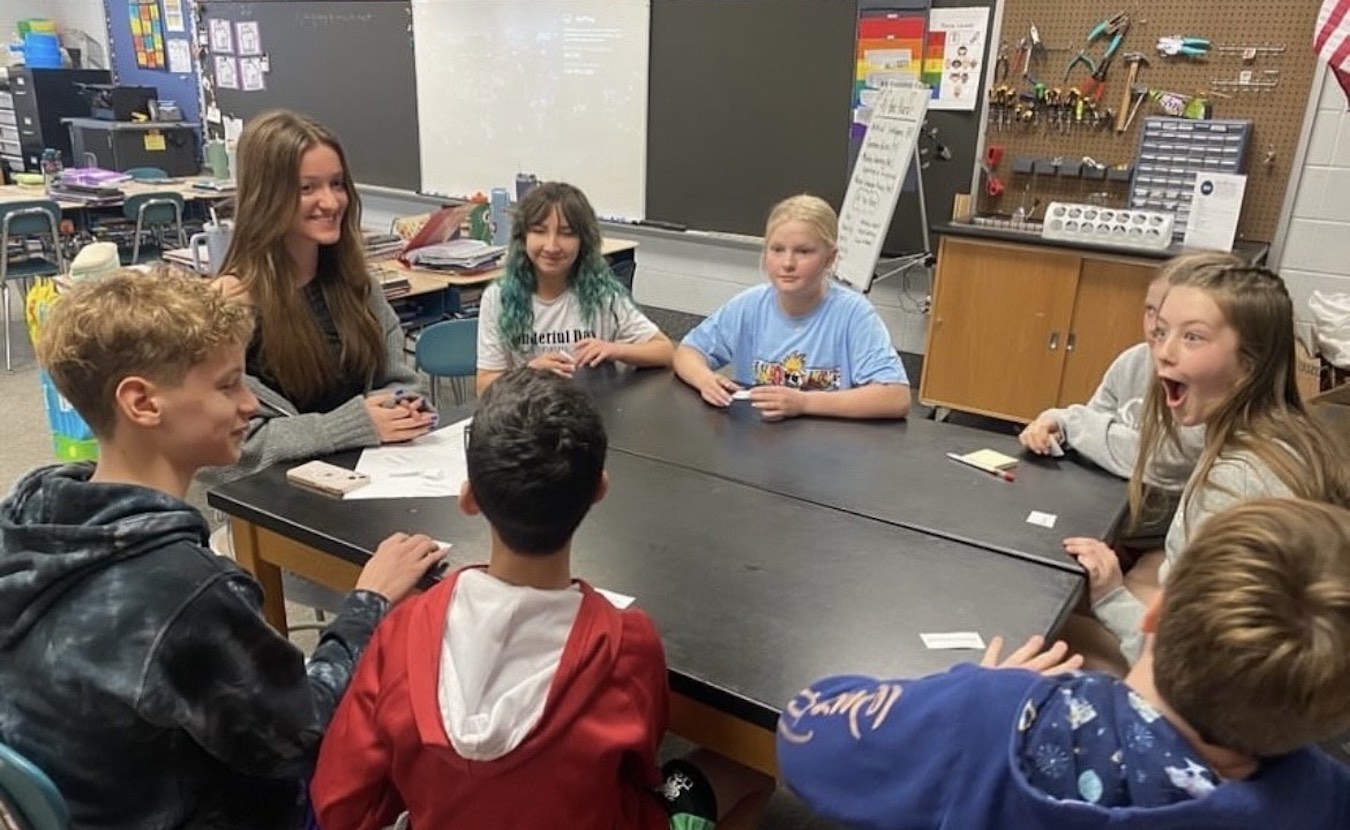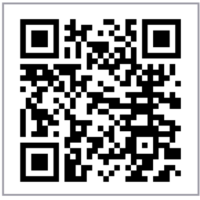Sophia Craiutu won’t be old enough to vote on November 5, to her great disappointment. But she’s doing all she can to get her peers registered and ready.
The Bloomington High School North senior is making presentations on voting and leading issues-based discussions to help her fellow students engage in the democratic process. And she’s helping them get registered by the October 7 deadline.

Craiutu wants more high school seniors to register and vote. | Courtesy photo
“I not only hope that more high school seniors register and vote,” she said, “but I want them to become more active citizens and to understand the stakes of this election.”
Craiutu believes students need to be involved in choosing our elected leaders, both for their own sake and for the future of the country. “This is going to affect you, directly and indirectly,” she tells them. “The decisions that are made are going to affect you.”
More such engagement is clearly called for in Indiana, which does poorly on some measures of civic participation. In 2020, the last presidential election year, it ranked 46th for voter turnout and 39th for registration of voting-age adults, according to the 2023 Indiana Civic Health Index, a project of the Indiana Bar Foundation and partner groups.
One problem, according to the index, is that few Indiana elections are competitive, a function of Republicans’ overwhelming advantage and gerrymandered congressional and state legislative districts. Another is that Indiana laws, compared to those in some states, don’t make voting easy. For example, the deadline to register is nearly a month ahead of the election, absentee voting is tightly restricted, and polls are open for only 12 hours on Election Day.
Measured by voting, Hoosiers aged 18 and 19 are even less engaged, according to research by Tufts University’s Center for Information & Research on Civic Learning and Engagement, known as CIRCLE. There were 18 percent fewer Hoosiers in that age group registered to vote as of September 3 than there were on Election Day in 2020, CIRCLE said.

Indiana ranked 46th in voter turnout and 39th for registration of voting-age adults in 2020, according to the Indiana Bar Foundation and partner groups. Source: 2023 Indiana Civic Health Index.
Craiutu, not yet three months past her 17th birthday, is out to change that, one young voter at a time. She brings energy and ambition to the task, with activities to match the most politically engaged college student. Her class schedule is packed with Advanced Placement courses, including AP Government, her favorite. She has taken college-level classes at Indiana University–Bloomington and Ivy Tech Community College.
Her resume lists internships and volunteer positions with the University of Pennsylvania Institute for the Study of the Citizen and Politics, the local National Organization for Women chapter, a Bloomington city councilwoman, the American Cancer Society, and more. She volunteers for two current political campaigns: Thomas Horrocks for Indiana House and Valerie McCray for U.S. Senate. At Stanford University’s Hoover Institution, she was hired by renowned education scholar Chester Finn to help with citizenship research.
“I helped put together a polarity quiz,” she said. “That was super exciting. I helped formulate questions that will be included in the quiz.”
In her spare time: figure skating. She skates competitively with the Lincoln Center Skate Club in Columbus, Indiana, and teaches at the Frank Southern Center in Bloomington.
“I enjoy everything I do,” she said in an interview in the café of Morgenstern’s Bookstore on Bloomington’s east side. “That makes it so much easier.”
Last year, she and a classmate, Iris Jones, founded Global Learners, a project to teach current events to younger students. It’s active in Monroe County Community School Corp. elementary schools and lists chapters in six states and about a dozen countries.
As the 2024 election approached, Craiutu began to think about using the Global Learners approach, which relies on interactive discussions and role-playing, to engage new voters. With guidance from the Political and Civic Engagement program (PACE) at IU, she is reaching high school seniors in government and economics classes with projects that focus on voting rights and history, along with current issues. She is meeting this week with seniors at her own school and sharing her materials with students at Bloomington High School South.

Lisa-Marie Napoli, director of the Political and Civic Engagement program at Indiana University. | Courtesy photo
“Sophia is wonderful to work with, and we were happy to collaborate,” said Lisa-Marie Napoli, the director of PACE. “I just love her curiosity, her eagerness to learn more and to support her fellow students in helping them register to vote.”
Napoli said a key element of Craiutu’s voting drive is that it’s by students, for students; it’s not teachers or politicians or political party leaders telling young people what to do.
“I think what works is, students talking to other students,” Napoli said.
There’s a widespread belief that young people are tethered to their cellphones, obsessed with their social lives and apathetic about politics. Research by CIRCLE finds that’s a myth. Nationwide, they are increasingly likely to vote, speak out, and volunteer for campaigns.
Napoli said she has seen that in her 15 years at PACE. “I just find there’s a lot of students who are craving being involved,” she said. “They want to do all they can to create a better world.”
The work that Craiutu and her colleagues are doing, both with high school seniors and elementary students, also aligns with a Tufts CIRCLE recommendation that the way to build a new generation of voters is to “start early and start young.”

The Indiana Civic Health Index is a project of the Indiana Bar Foundation and partner groups to study Hoosiers’ participation in civic life, including civic education in schools and citizen participation in the election process. You can find the index at inbarfoundation.org.
“There’s a lot of scholarly research showing voting is a habit,” said Alberto Medina, communications team lead with CIRCLE. “If you vote at a young age, it just becomes a thing you do. It’s part of your identity.”
But starting the habit can be hard. Young people often don’t find a “political home,” Medina said. Many don’t identify with a political party. They may struggle to learn when and where to register, who the candidates are, and how to fill out a ballot. The decline of local news and the rise of unreliable social media are, for young voters, a recipe for confusion.
“Outreach is incredibly important,” Medina said. “When young people get encouraged to vote, by organizations, by advocacy groups, by parties, that has an impact.”
Students may, of course, learn about voting and civic affairs in school. On the plus side, Indiana now requires a semester-long course in civics in sixth grade. It’s one of only eight states to require civics education by the middle-school level, according to the Indiana Bar Foundation. On the other hand, new high-school diploma requirements being considered by the State Board of Education would strike a requirement that all students study world history and a recommendation that they study a world language.
Craiutu said young voters bring their own perspectives to current issues. They’re much more concerned than older voters about climate change and school shootings, both of which can affect them directly. She is personally focused on the fact that the next president could possibly make several appointments to the U.S. Supreme Court.
“Those are going to affect our generation and generations after that,” she said.
Craiutu said she stays nonpartisan in her civic engagement work. She can count on talks with her father, IU Bloomington Department of Political Science chair Aurelian Craiutu, the author of several books on the virtue of moderation, to check any impulses toward partisanship. But she can’t help noting the stark contrasts in the presidential election.
“With Kamala Harris, we’re witnessing history,” she said. “Regardless of whether you support her, she’s a Black woman who has made it all the way to the top.”
What would it mean for her voting campaign to succeed? Craiutu doesn’t want to set goals for numbers of students registered or increases in turnout. Instead, she hopes to hear back from students that they learned how to be active citizens.
“It’s about making them hopeful for the future,” she said. “Knowing they have a voice. Giving them that hope.”
Voter Registration Information
Indiana’s voter registration deadline is October 7. Hoosiers who are U.S. citizens and will be 18 years or older on November 5 can register to vote — or check their voter registration — by visiting the Indiana secretary of state’s voter portal. You can also scan the QR Code to go indianavoters.in.gov.
This article first appeared in The Indiana Citizen, a nonpartisan, nonprofit platform dedicated to increasing the number of informed and engaged Hoosier citizens. It is operated by the Indiana Citizen Education Foundation, Inc., a 501(c)(3) public charity. This story was edited by Dwight Adams, a freelance editor and writer based in Indianapolis. For questions about the story, contact Marilyn Odendahl at [email protected].





